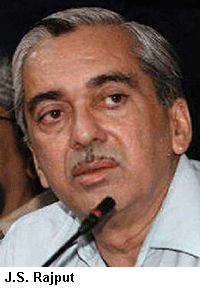 As alluded to in the Union Budget 2018-19 speech presented to Parliament and the nation on February 1, a determined decision has been taken by the Central government to restructure teacher training and development countrywide. In future, the regulatory body for teacher education — NCTE (National Council for Teacher Education) — will approve only four-year integrated degree programmes of teacher training colleges. The one-year B.Ed programme for secondary school teachers and two-year programme for elementary school teachers are likely to be scrapped.
As alluded to in the Union Budget 2018-19 speech presented to Parliament and the nation on February 1, a determined decision has been taken by the Central government to restructure teacher training and development countrywide. In future, the regulatory body for teacher education — NCTE (National Council for Teacher Education) — will approve only four-year integrated degree programmes of teacher training colleges. The one-year B.Ed programme for secondary school teachers and two-year programme for elementary school teachers are likely to be scrapped.
The compulsory four-year BA/B.Sc integrated programme for K-12 teachers could prove a gamechanger in an education system wilting under the weight of severe quality deterioration, including inadequate personality development of teachers. The existing teacher training syllabuses and curriculums have little credibility within and outside the system. Every cause of decline of the existing system deserves incisive scrutiny to ensure the new initiative isn’t bogged down by continuity of entrenched impediments.
The first prerequisite for success of the new four-year integrated programme is to ensure that manageable teacher-pupil ratios are mandated for all schools. Over the past three decades the issue of acute shortage of teachers that extends from primary schools to institutions of higher education at the other end of the spectrum, has been swept under the proverbial carpet and initiatives taken to redress the situation haven’t generated much confidence even within the system. On December 5, 2016, Parliament was informed of 18 percent and 15 percent teacher vacancies in government primary and secondary schools. Inevitably, the major sufferers are children in rural, tribal and other far-flung areas of the country, or in simple terms children from the weaker and deprived sections of society.
Another daunting challenge is the indifferent work culture and degrees of commitment in a large number of teacher training institutions established by private entrepreneurs, who have only ROI (return on investment) on their radar almost to the exclusion of professional and societal obligations. Regrettably, the scramble for vulgar commerce in the teacher education system by ‘investors’ driven by avarice could not be checked in time by NCTE. This, too, has to be corrected. Ground-level impediments and distractions must be acknowledged and expeditiously eliminated to ensure the success of the proposed reforms in teacher education.
This revived and overdue interest in teacher education isn’t new. Educational planners and thinkers had become aware of the inadequacy of the duration of teacher preparation programmes soon after independence. The Secondary Education Commission (1952-53) — also known as the Mudaliar Commission — commented: “Graduate training is restricted to one year, and although we have recommended as a long-term programme the desirability of increasing this period to two academic years, we realise it cannot be thought of in the immediate future”. Obviously, while accepting the one-year postgraduate programme for teachers as a short-term arrangement, the Commission was driven by the constitutional mandate to “provide free and compulsory education to all children till they attain 14 years of age”. Therefore, the preferable two-year B.Ed programme had to be shelved because of the urgency to provide primary education to all children.
It was against this background that the National Education Commission (1964-66), popularly known as the Kothari Commission, recommended: “The duration of training courses (for teachers) should be one year for graduate students but the number of working days in a year should be increased to 230.” The need for longer duration teacher training programmes was also echoed by the National Commission on Teachers under the chairmanship of Prof. D.P. Chattopadhyay in 1985.
In the early years after independence, there was no dearth of sound educational philosophy for school education reforms. At that time, the newly freed country had great luminaries with insight and foresight well-aware that “education was the ray of hope” for raising the masses out of poverty caused by nearly 200 years of foreign rule. Now that the optimism about universal qualitatively acceptable school education has somewhat belatedly been revived after a long interregnum, one hopes that all precautions will be taken to ensure rollout of the integrated teacher training courses nationwide.
The distinction between a BA and B.Ed completed in three plus one year, and the BA, B.Ed four-year integrated teacher training programme is real and has to be internalised by curriculum developers and teacher educators. Past experience has shown that it requires considerable professional and academic expertise to develop contemporary content and pedagogies. The proposed four-year integrated programmes will succeed only if teacher education institutes — both public and private — become aware and internalise their role in reshaping the future of India. This is not exaggeration. The plain truth is that teacher education institutions are the ‘power plants’ of every nation. Productivity in every human endeavour flows from these power plants.
(Prof. J.S. Rajput is a former director of NCERT and NCTE)























